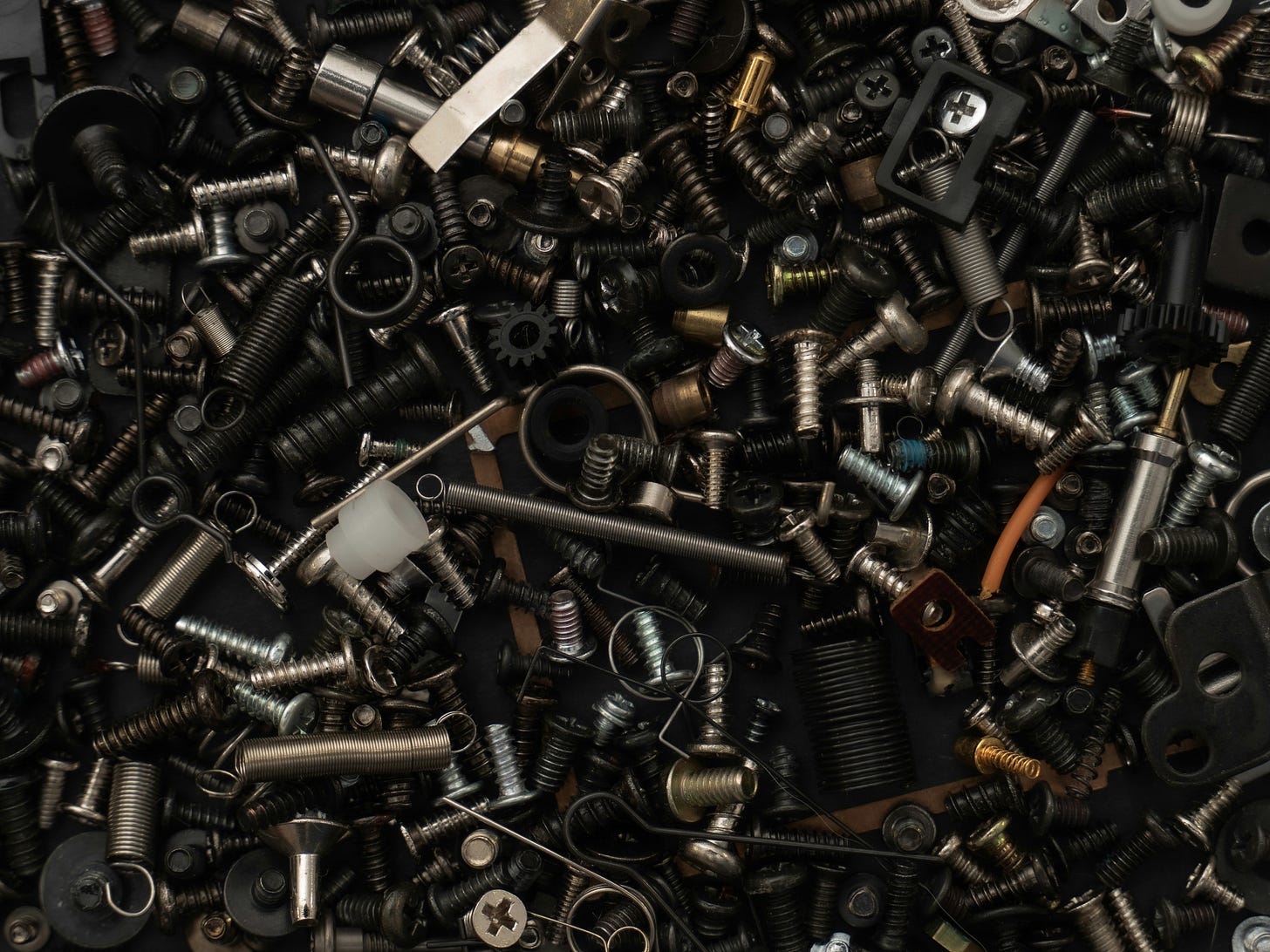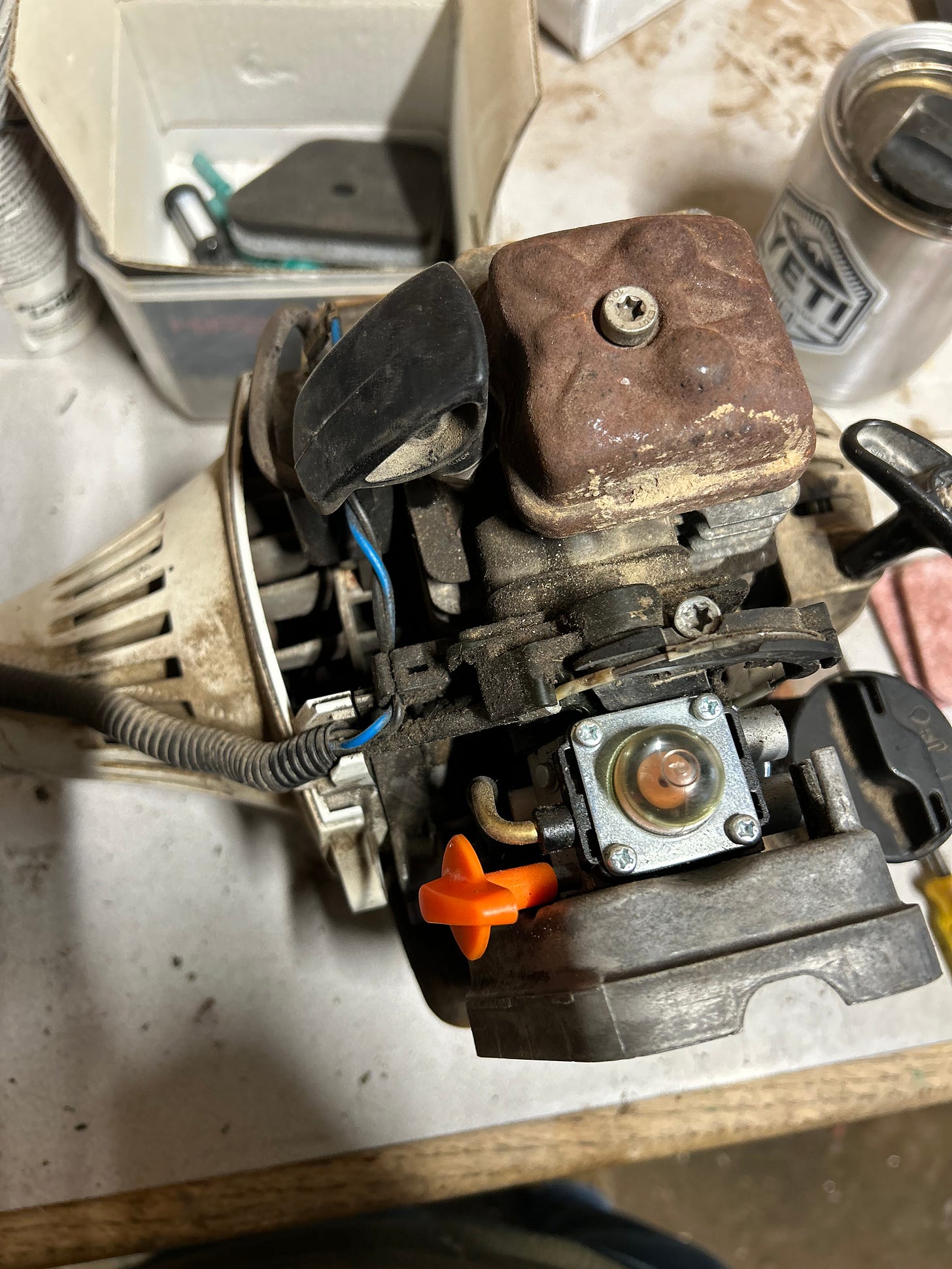On Rebuilding and Repair
Two thoughts on repair and the process of sustaining.
Today I wanted to share two thoughts, one on the process of repairing small engines and the other on the idea of sustainment. These thoughts are important in the world of disposable things. How to not only be a creator but also a fixer. Someone who forges ahead with joy in this broken world and gets to work solving some of its problems.
I enjoy working on small engines. Something about those simple little two and four stroke motors humming along as they work brings a certain amount of satisfaction and astonishment in equal parts. That mixture is disrupted when the engines fail. Which turns out can be a wide variety of issues.
I wouldn't say that I have a knack for repairing small engines. But I do have persistence and experience. A little trial and error goes a long way, and troubleshooting is a welcomed process. Add these all together and one can usually figure out what is going wrong with the machine. Being able to work through the oily, greasy, dusty mess of a broken engine is simultaneously satisfying and mysterious.
It is this mystery when an engine begins to sputter and fail, that creates in me a sudden desire to tear it apart and begin searching through its metal insides to see what the problem is. Of course, one must develop a systemized process of searching based on the symptoms. Does it die when it is at idle or does it die when it has been running for some time?The former could be a simple idle screw on the carb and the latter could just be out of gas. Each symptom is connected underneath by deep roots to other problems. Or that any presenting symptom could have any number of causes.
You cannot be too hasty when diving into an engine. One must pay close attention if you are to venture into the depths of a Stihl chainsaw. One wrong move could send a screw or a spring into oblivion of the floor, never to be found again. Serious observation and careful removal of the parts are required. An effective motor-detective will work from the outside-in when diagnosing problems (unless the cause is known).
As the search continues, clues and signs begin to show. Thus illuminating the answer as I approach it. The search is tactile, physical, it's more than mere navel-gazing. This process has results, and you either fix it or you don't. There are no participation trophies in this race. It is this process that provides the reward. Today, I fixed something. It was broken, now it works, simple as that.
This leads into the second thought. Sustaining by repairing. Yes, you could throw away that old weedeater that sometimes works. Yes, that home improvement store has a sale on weedeaters right now. And sometimes you do need to go buy new equipment. But I propose that that should not be your first course of action. If the problem with your machine is unknown, consider trying to fix it. You just might surprise yourself.
Not only did you fix the machine, but you sustained it. You made it last. If only for a bit longer. It was broken and now you fixed it. You may have even learned something in the process. Now you are equipped with one solution to one problem. If it happens again, you know what to do. If it happens to a neighbor or a family member's machine, you know how to help them. You have become an asset in a new way.
You don't have to learn it all in one day. I certainly did not. It is a slow plod. Become a lifetime learner. Learn how to maintenance your equipment, and then learn how to fix it when it acts up. And it will act up. Thankfully, it has you to take care of it when it does.
There is satisfaction in fixing things. That satisfaction is for a reason. It is a gift. There easily could not have been any joy when things that were broken now work again. But there is. God made it that way. Despite the destruction and the inevitable decay of all things, He has enabled there to be joy in keeping things going, of rebuilding and repair. In the midst of the curse, there is blessing.





